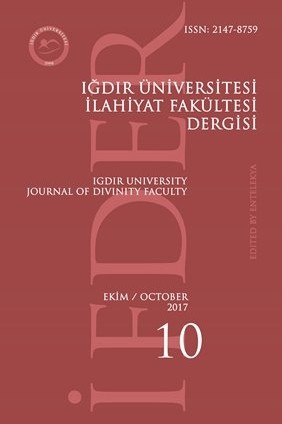Hayat Boyu Eğitim
Hayat boyu eğitimin amacı geniş bir fikir birliği sağlamak olmasına rağmen, muhafazakârlığıyla bilinen yetişkinler tarafından yaygın bir şekilde eleştirilmiştir. Bu çalışma, söz konusu kavramın 1960’larda ve 1970’lerdeki kaynağını keşfetmeyi ve yakın dönemlerde konuya dair egemen yaklaşımların ana temalarını karşılaştırmayı amaçlamaktadır. 1990’larda yaşanan dönüm noktasının temel özelliği, hayat boyu eğitimin milli eğitim ve meslek edindirme sistemlerine olan bakış açısının reformu ve modernleşmesi için bir slogandan daha çok, bir araç oluşuydu. Hayat boyu eğitimin yükselişi batı ülkelerinde sivil toplum ve devlet arasındaki ilişkinin, geniş bir şekilde dönüşüme uğramasına da eşlik etmiştir. Hayat boyu öğrenmenin sonuçlardan biri, geç modern toplumların yönetimini şekillendiren pek çok faktörden biri haline gelmesidir.
Anahtar Kelimeler:
Hayat boyu eğitim, hayat boyu öğrenme, sürekli eğitim, eğitim, öğrenme.
Lifelong Education
While the goal of lifelong learning commands a broad policy consensus, it has been widely criticized by adults educationists for its conservatism. This paper explores the origins of the concept in the 1960s and 1970s, and compares key themes with the dominant approaches of the recent period. While there was a turning point during the 1990s, its chief feature was that lifelong learning was less a slogan than a tool for the reform and modernization of aspects of national education and training systems. Its rise has accompanied a wider transformation in the rela-tionship between civil society and state in the western na-tions. One result is that lifelong learning is becoming one among many factors that are transforming the governance of late modern societies, as the state sheds directive powers both downwards (to individuals and associations) and upwards (to transnational corporations and intergovernmental bodies).
Keywords:
Lifelong education, lifelong learning, continuing education, education, learning.,
- ISSN: 2147-8759
- Başlangıç: 2013
- Yayıncı: Iğdır Üniversitesi
Sayıdaki Diğer Makaleler
Muhammed Cevâd MEŞKÛR, Şahin AHMETOĞLU
Geleneksel Türk Dini’ndeki ‘Ana / Dişil Ruhlar’a Mitolojik Açıdan Bakış
Târîh-i Şîa ve Fırkahâ-yı İslâm tâ Karn-ı Çahârrum
Kur’an’da Esma-i Hüsna: Allah’ın Güzel İsimlerine Mazhariyet
NOSTALJİ Târîh-i Felsefe Dersleri*
Mehmed Ali AYNİ, İlyas ALTUNER
Din Eğitiminde Program Geliştirme ve Aile Faktörü
Müslüman ve Hıristiyan İki Mistik Tutumundan Aşk (Rabia Adeviye ve Teresa Avila)
Meryem BAHTİYAR, Ekrem REZAİ, Emine ÖZTÜRK
İlahiyat Lisans Programları İçin Öğrenme Çıktılarının Hazırlanması [Arapça]
